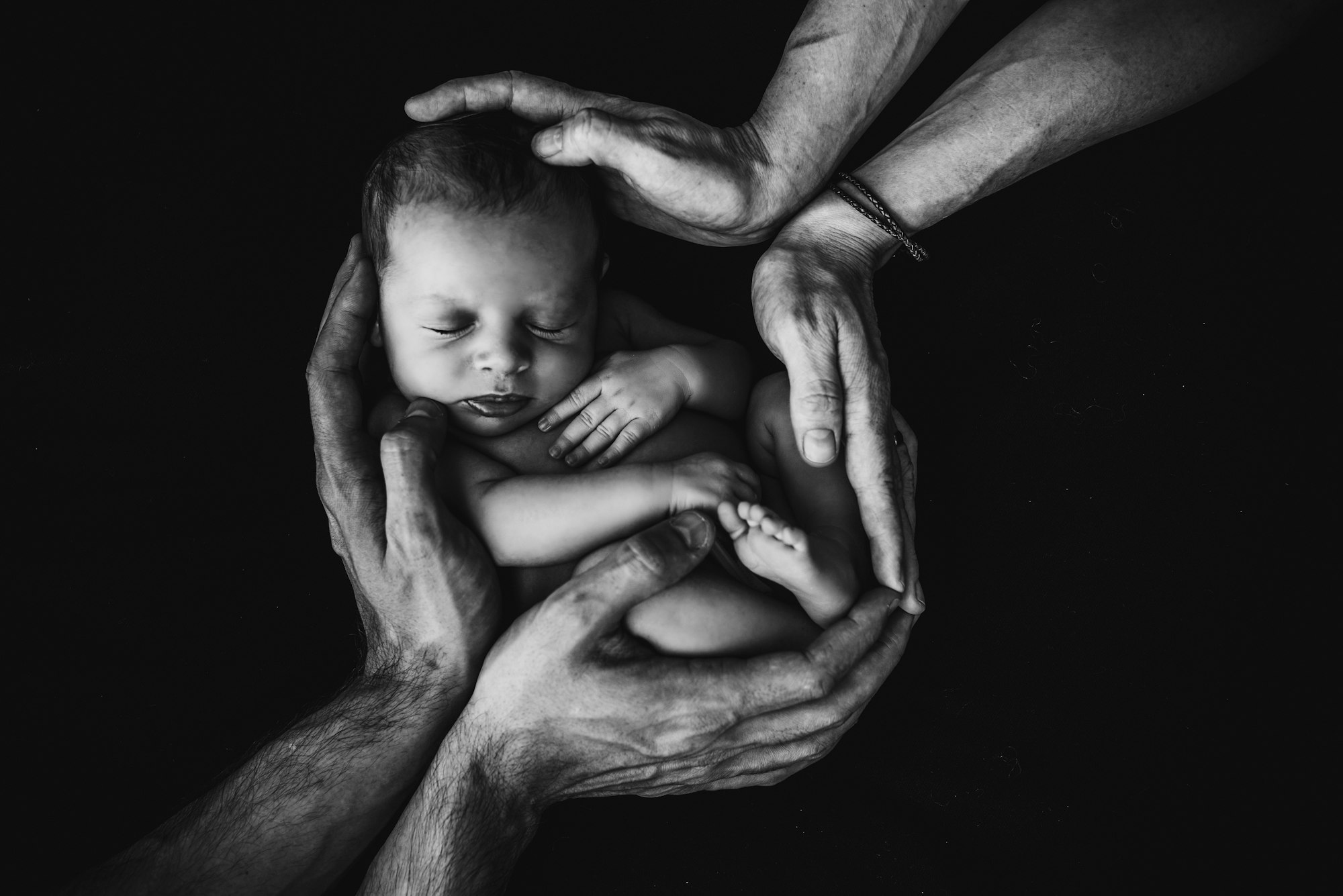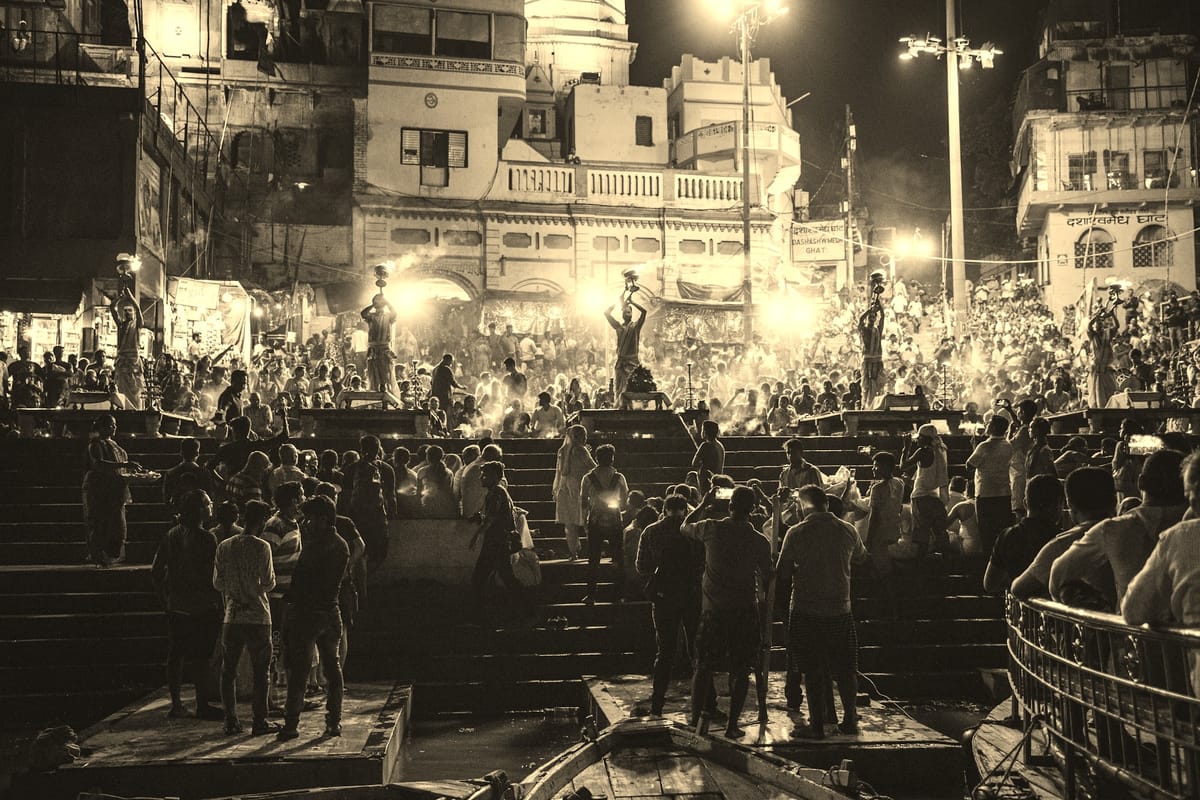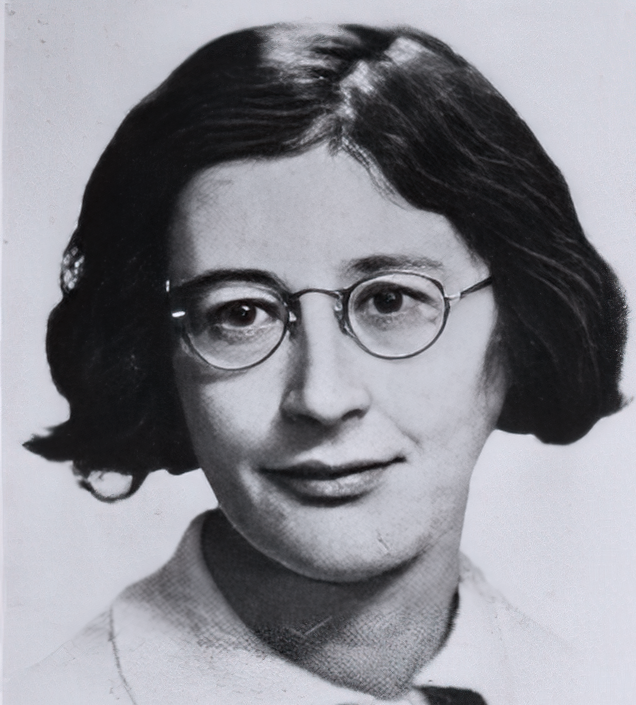3. Level - Personal Consciousness
The Personal Level of Consciousness marks a shift from collective identity to individual autonomy. While this transition fosters independence, it also leads to deep fragmentation. Disconnected from nature and each other, we chase progress, yet fulfillment remains elusive.

Separation and Self-Reflection
At the Personal Level of Consciousness, we begin to transcend the group-oriented identity of the previous level and cultivate a unique, autonomous sense of self. Rather than deriving their primary sense of identity from external collectives like nations, religions, or ideologies, people at this level develop a strong capacity for independent thought, self-responsibility, and the formation of an individualized identity. This marks a significant psychological shift as we move away from the group-dependent mindset of "Identity Consciousness," asserting their own values, beliefs, and sense of purpose, and taking greater ownership over their choices, emotions, and life direction.
Although this evolution is crucial, it has also led humanity into profound fragmentation. We now live as isolated beings, increasingly disconnected from one another and from the natural world, fuelling our dysfunctional behaviors—unending consumerism, ecological destruction, psychological suffering, and social division. This deep fragmentation explains why, despite immense material success, genuine fulfillment and lasting happiness, remain elusive.
Keywords
- Individuality: Defining oneself through personal goals and unique traits.
- Egocentrism: Prioritizing one's own needs and desires above communal well-being.
- Logic - Rational: Emphasizing objective, analytical thinking over more intuitive or emotional modes of understanding.
- Science - Organization: Valuing the systematic, empirical study of the world and the efficient structuring of systems and processes.
- Competition: Viewing life as a contest, driving motivation primarily through success relative to others.
- Responsibility: Recognizing and accepting the outcomes of one's decisions and actions.
- Mental fear - Control: Fixation on the individual self, a need to maintain psychological security and dominance.
- Democracy: Belief in the political system that emphasizes individual rights and the will of the people.
- Art - Happiness - Wanting - Time - Materialism: Pursuit of fulfillment and meaning through creative expression, experiences, and the acquisition of possessions, at the expense of deeper connections.
- Separation: A deep sense of isolation and disconnection, where individuals feel like isolated beings in a seemingly indifferent universe, cut off from meaningful relationships and a sense of belonging to the greater whole.
Historical Context
This level represents a quantum leap, enabling unprecedented progress in an incredibly short period. In just 250 years, we have reshaped both the world and ourselves in dramatic and extreme ways.
The roots of this transformation trace back roughly 500 years to the Scientific Revolution and the Enlightenment. Over the following centuries, these developments laid the foundation for the modern world, ushering in an era of astonishing breakthroughs. Today, we accomplish feats that would have once been deemed miracles—or heresies worthy of punishment. On the surface, it appears that we live in the greatest era humanity has ever known (at least in the West). Yet, beneath this progress lies an unsettling truth—the cost to both humanity, and the planet is immense, far outweighing the perceived benefits.
For most of the history, humans saw themselves as part of something greater, woven into the fabric of nature and existence. But with the emergence of the Personal Level, we placed ourselves at the center, creating the illusion of dominance over everything else. This mindset gave rise to human-centrism, a fundamentally flawed paradigm in which humanity is separate from nature. Science, in its mechanistic interpretation, reduced life to blind energy, the body to a machine, the heart to a mere pump, and disease to an enemy. Security became the new religion, and money became God.
As our detachment from nature deepened, confusion, depression, apathy, and nihilism took root as the new normal. Our stories—the fictions we tell ourselves—became so powerful that most people lost touch with reality, trapped in a world of artificial meaning. Modern life has become a battlefield of illusions, where security and control have taken precedence over truth and deeper understanding.
Remaining stuck at this level leads to inevitable self-destruction. The very tools that enabled humanity to flourish are now being misused against nature—and ultimately against ourselves.
We are reaching a critical juncture where the consequences of our choices can no longer be ignored. The imbalance we have created is not an abstract threat but a reality manifesting in the instability of our societies, the degradation of our environment, and the deepening crisis of meaning in our lives. The real question is not whether our way of life can continue as it is, but whether we will recognize the need for a fundamental shift before the weight of these consequences forces it upon us.
This realization is sobering, but it also presents an unprecedented opportunity. We stand at the threshold of evolution, with the chance to transcend this level and move toward the Integral human.
Identity
At the identity level of consciousness, we still feel embedded in something greater—nature, religion, God or any other supreme power. There is no fundamental separation between self and world. But with the rise of the Personal level, this connection comes to an end. We become islands, drifting in an indifferent universe, defining ourselves not by being part of something greater but by our individual existence.
Wrapped in the stories we weave, we mistake the narratives we tell ourselves for reality. Life itself becomes an obstacle—something to be conquered, optimized, and bent to our will. In the process, we lose sight of what is real: our connection to nature, to others, and ultimately, to ourselves.
Despite unparalleled progress, we are no happier. In fact, the opposite is true. We chase solutions to problems we have created, moving from crisis to crisis, from one therapy to another. We consume without need, vote against our own interests, and remain trapped in the illusion that fulfillment exists somewhere in the future, always just out of reach.
Of course, there are moments of clarity—brief glimpses of something beyond this fragmented existence, fleeting touches of a deeper consciousness. But they pass like whispers, drowned out by the relentless demands of the personal self.
At this level, we do not experience life as an unfolding presence but as an object, something we possess, manage, or improve—like a house, a car, or a project. We say, "I have a life" as if life were an asset rather than the very essence of our being. Our identity becomes entangled in thought, emotion, and the roles imposed upon us and by us.
With this shift comes the realization of death—not as an abstract concept, but as an inescapable reality. Without a deeper framework—whether spiritual, philosophical, or existential—this recognition is terrifying. The pursuit of wealth, status, and experience feels meaningless in the face of inevitable dissolution.
This level is akin to adolescence—an essential bridge between childhood and maturity. But when we remain trapped here, when we mistake this phase for the final destination, the result is dysfunction, anxiety, and perpetual dissatisfaction.
The mantra of this level is simple: "I WANT." The personal identity behaves like a restless child in a supermarket, endlessly grasping for more. As long as we remain entangled in this level—identified with the ego, the personal self, the shadow of the mind—we remain caught in an endless cycle of drama, longing, and suffering.
True resolution does not exist here. No amount of wealth, achievement, or external validation will ever be enough. The only path forward is the ascent to higher levels of consciousness—where identity dissolves, and something beyond the personal self begins to emerge.
Key Characteristics of Personal Consciousness
- Individuation and Self-Reflection
- Individuals at this level begin to define themselves outside traditional group structures. They question inherited beliefs, challenge societal norms, and seek personal meaning in life.
- There is a growing ability to reflect on one’s actions, motives, and the broader consequences of choices.
- Separation
- A deep sense of fragmentation defines this level. Individuals perceive themselves as isolated entities, cut off from the larger whole of existence.
- Relationships are often transactional, driven by self-interest rather than an intrinsic sense of unity or belonging.
- Autonomy and Self-Responsibility
- Decisions are made based on personal values rather than blind adherence to collective ideologies.
- Individuals at this level recognize their role in shaping their own destiny and take responsibility for their successes and failures.
- Death Awareness
- The realization of mortality becomes an inescapable presence in one's consciousness, yet without a deeper existential framework, it leads to anxiety, nihilism, or desperate attempts to distract from this truth.
- Many seek solace in material achievements or ideological constructs to avoid confronting the impermanence of life.
- Rational Thinking and Critical Inquiry
- Personal consciousness fosters logical reasoning and analysis. People at this level strive for objective knowledge rather than emotional or dogmatic justifications.
- There is an openness to diverse perspectives, but the focus remains on developing one's own convictions rather than conforming to external expectations.
- Ambition and Self-Determination
- Many individuals at this level seek personal success, career growth, and self-improvement.
- While they may engage in social and political issues, their primary concern is personal achievement rather than collective progress.
- Limited Holistic Perspective
- Although individuals at this level are more self-aware and capable of independent thinking, they still operate largely within ego-centered frameworks.
- The understanding of interconnectedness and collective responsibility remains underdeveloped.
Relation to Society and Power Structures
At this level, society is no longer perceived as a collective organism, but as a landscape of competing individuals, each striving to assert their own interests, status, and autonomy. Power is not seen as something shared but as something to be acquired, defended, or wielded against others. The notion of governance shifts from a communal responsibility to a battleground where influence and control dictate the rules of engagement.
Institutions reflect this mindset. Democracy, while theoretically based on collective will, is reduced to a mechanism for personal or group advantage. Political engagement is not driven by deep societal understanding but by self-interest, short-term gains, and tribal loyalties disguised as rational choices. The idea of representation itself becomes transactional, mirroring the individual's sense of separation and fragmentation.
Economically, this consciousness fuels hyper-competition. The market is not just a system of exchange but an arena of competition, where value is determined by power, accumulation, and dominance rather than well-being or sustainability. Wealth becomes the measure of success, reinforcing a power hierarchy where those who have more are perceived as more deserving, while those with less are considered failures in a game where only individual effort is recognized.
This level of consciousness does not seek to abolish power but to navigate it, manipulate it, and, if possible, control it. This explains why systems of oppression, inequality, and exploitation persist—because they are reflections of the personal consciousness itself, external manifestations of the internal struggle for identity, recognition, and security.
At its core, this level breeds disillusionment. The promise of self-determination collides with the reality of systemic constraints, yet instead of challenging the structure itself, we seek to use it to get the most out of it. Power does not dissolve at this level—it fragments, just as personal consciousness does. Only by transcending this paradigm can we begin to see beyond the illusion of isolated struggle and toward a more integrated vision of existence.
This level is an essential transitional phase—it marks a departure from blind conformity, yet it still operates within the framework of self-interest. It is only by progressing to integral and nondual consciousness that individuals can fully grasp the deeper structures of society and move beyond the inherent contradictions of fragmented awareness.
Related readings






